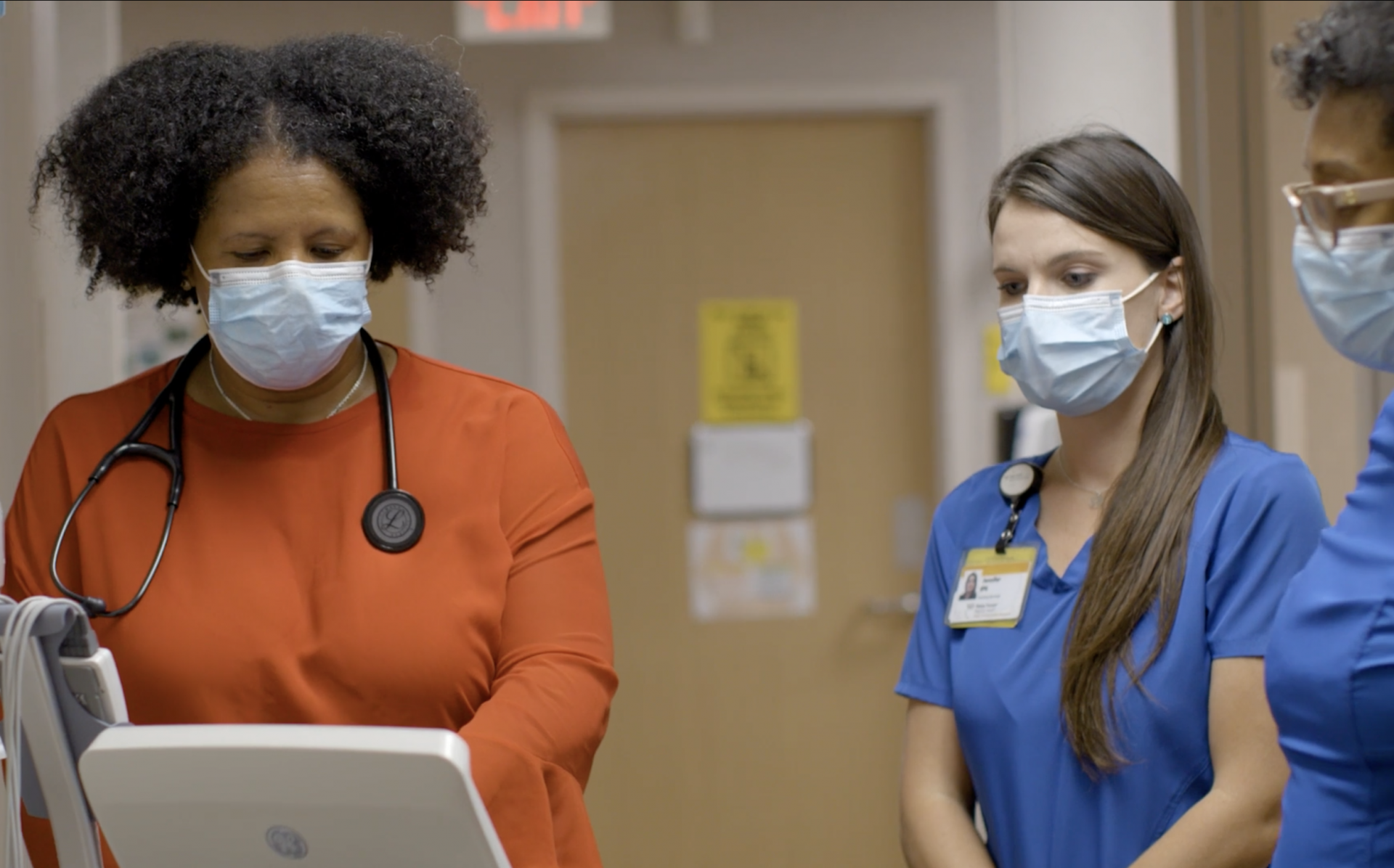Discover how iQ community members—from med students to leaders in clinical care and research—are working to alleviate health inequities at home and nationally.
Winston-Salem has some of the largest health and economic disparities in the country—and our community is helping lead the charge for change. “[Our city has] a lot of different health care disparities. We have a high percentage of patients and community members that live in poverty,” says Dr. Nancy Denizard-Thompson, an associate professor of General Internal Medicine at the Wake Forest School of Medicine.
“So much of our health outcomes are based on the health of our environment, particularly in Winston Salem; the differences in access to healthcare are major issues. If you don’t have transportation, if you cannot take time off of work, access to healthcare is compounded by the social determinants of health,” adds Allison Caban-Holt, Ph.D., associate director of the Maya Angelou Center for Health Equity at Wake Forest School of Medicine.
In zip code 27101, where the Innovation Quarter sits, 45% of residents are part of a single-parent household, opposed to 31% for all of Forsyth County.
WFBH COMMUNITY HEALTH NEEDS ASSESSMENT
And over 20% of households do not have a vehicle,
compared to 7% county-wide.
“Some of the biggest challenges for access right now, one is technology, especially in light of COVID when everyone is trying to, you know, stay at home more,” says Laura Silla, a fourth-year medical student at Wake Forest School of Medicine.
Jennifer Byrne, founder of Javara Research, shares “Disparity means a wide gap, and when you’re talking about health and health outcomes, and you see that there are populations of people who are more likely to die or suffer, it only heightens the socially charged issues that this community has faced.”
Nearly a quarter of adults in 27101 do not have health insurance, and 42.7% of children live below poverty, in contrast to 25.8% throughout Forsyth County.
WFBH COMMUNITY HEALTH NEEDS ASSESSMENT
Dr. Caban-Holt affirms this truth: “The Maya Angelou Center is really trying to listen to what the citizens are saying that they need, and trying to help provide that. The Maya Angelou Center for Health Equity has become a trusted source in our community for reliable information, for genuine connection. Our location here in Innovation Quarter has affected our thinking as a center. We literally look out of our window to the populations that are underserved.
“The synergy that we find in iQ, it improves Health Equity in a number of ways. Javara actually came in at a time when we were beginning to do outreach regarding COVID and one of their main values is the outreach to diversify clinical trials,” she shares.
Byrne echoes these sentiments: “Clinical research is kind of a tool in the toolbox to better address real population health and ultimately public health. When people get connected to clinical research, sometimes it’s at a moment of complete hopelessness. We’re being built for the purpose of enabling clinical research as a care option to all patients.
During the pandemic’s peak, as part of the COVID-19 Community Research Partnership, over 22,000 clinical trial volunteers completed daily online questionnaires to track possible exposures and symptoms—collecting over 2.25 million daily entries.
JAVARA RESEARCH
“Within the Innovation Quarter, there’s been a tremendous opportunity with the Maya Angelou Center for Health Equity. We were able to get deeper insights in terms of reaching an underserved population, and I’m really proud of the fact that the very first people to be vaccinated against COVID-19 in the world, we were part of that, and that happened right here in this community,” she finishes.
In August 2020, Javara began to recruit healthy adults for a Phase 3 clinical research study to evaluate the safety and effectiveness of the now-FDA approved Moderna vaccine.
Dr. Denizard-Thompson, who is also a practicing physician at the Downtown Health Plaza, states, “A lot of the issues are really systemic. We have a lot of community members that are really suffering. We serve an underserved population of East Winston. We have a pharmacy on site. We have a lab on site. It’s a really great way for patients to be able to get a lot of their needs met. Downtown Health Plaza was actually one of the first clinic sites that offered vaccines. The location of Downtown Health Plaza, and then now with the medical school having moved downtown a few years ago, has been wonderful.”
“As social determinants of health and these issues have become more mainstream, I see our students really appreciating that more in our patients, and we all need to realize that this matters because it touches all of our lives.”
NANCY DENIZARD-THOMPSON, MD
Dr. Denizard-Thompson’s mentee Laura Silla confirms this from a medical student perspective: “The idea for my foot and ankle clinic came from when I was on rotations during my third year of medical school. On every single rotation, I would kind of see this population of individuals, people experiencing homelessness, again and again, and all of them would come in with some sort of foot issue. I definitely saw this as a big need.
“I’ve been very fortunate because I’ve had so many collaborations with many amazing people and organizations in the area. I’m working with the North Carolina Albert Schweitzer Fellowship, City With Dwellings, which is a homeless resource center downtown, and in addition to that, partnered with DEAC [Clinic], which is our student-run clinic, and DEAC will be the one [working] with the [new] students coming in. The Health Equity curriculum at Wake Forest School of Medicine gives you a peek into a different world as a medical student. It’s an opportunity to kind of change the future generation of doctors,” Silla continues.
“We don’t have to live with these disparities, we just need to
ALLISON CABAN-HOLT
work to change them.”



